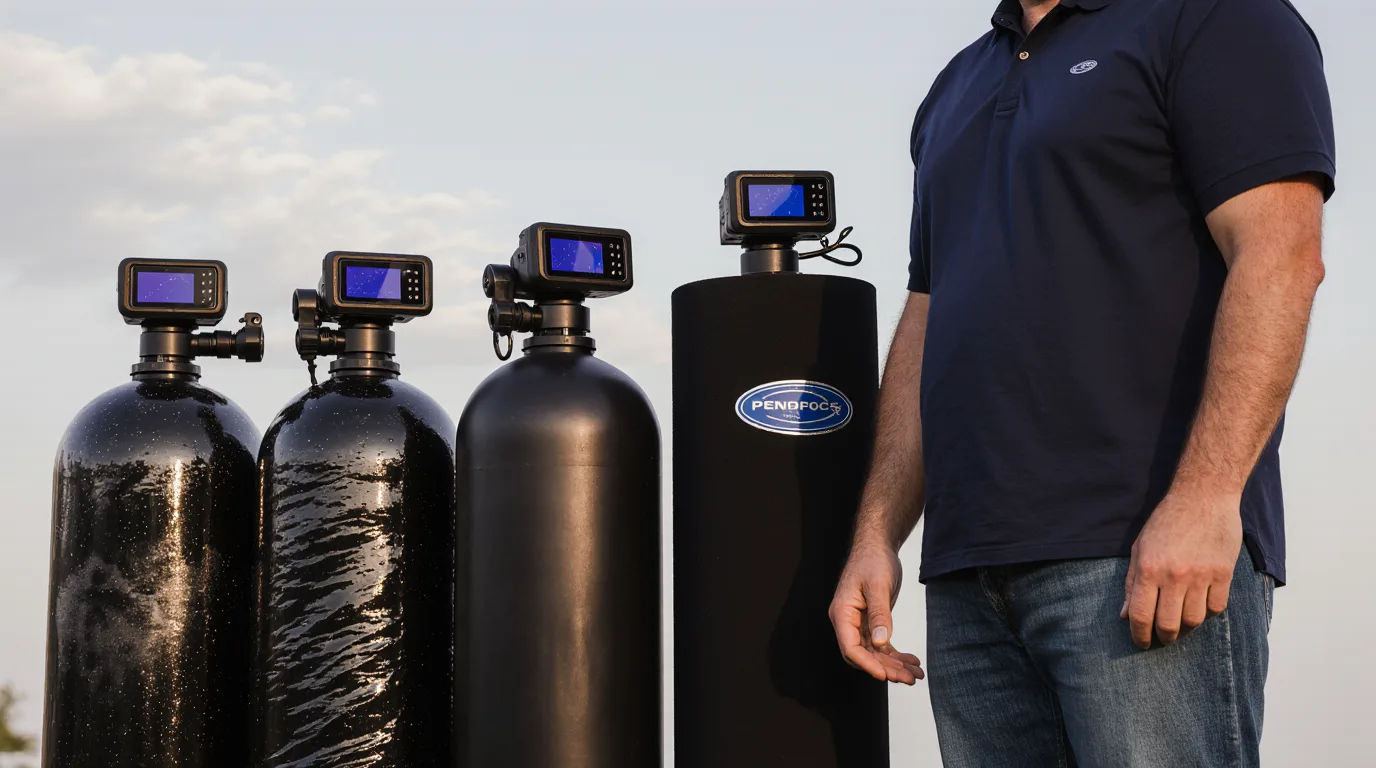
Water Softener Cost – Compare Prices & Installation in 2025
Water softener cost can range anywhere from $300 to a staggering $10,000. Are you feeling overwhelmed by these wildly different price points? You’re not alone.
When shopping for a water softener system, most of us typically spend between $1,000 and $3,000 for both the equipment and installation. However, the final water softener cost installation depends on several factors including your home’s size, water hardness levels, and the type of system you choose. For a professional-grade system, you might pay closer to $5,000, while the average water softener cost across American homes sits at approximately $3,100.
Throughout this guide, we’ll break down exactly what affects these prices, compare different system types, and help you understand how much a water softener costs for your specific situation. Whether you’re considering a basic descaler at $500 or a comprehensive whole-house solution that could reach $7,000, we’ve got you covered with everything you need to make an informed decision.
Table of Contents
Water Softener Cost System Breakdown (2025)
Understanding the breakdown of water softener cost in 2025 requires examining different system types and features that impact pricing. Let’s analyze what affects your investment decision.
Salt-Based vs Salt-Free: Price Differences
Salt-based water softener cost typically range from $400 to $2700 for standard models, making them generally more budget-friendly at an average of $1500. These systems use ion exchange to remove minerals completely from water, effectively eliminating hardness.
In contrast, salt-free water conditioners cost between $800 and $4000, positioning them at a higher price point. Although more expensive initially, they require less maintenance since you won’t need regular salt refills. Salt-free systems use potassium to crystallize hard minerals rather than removing them entirely.
Ion Exchange vs Magnetic Systems
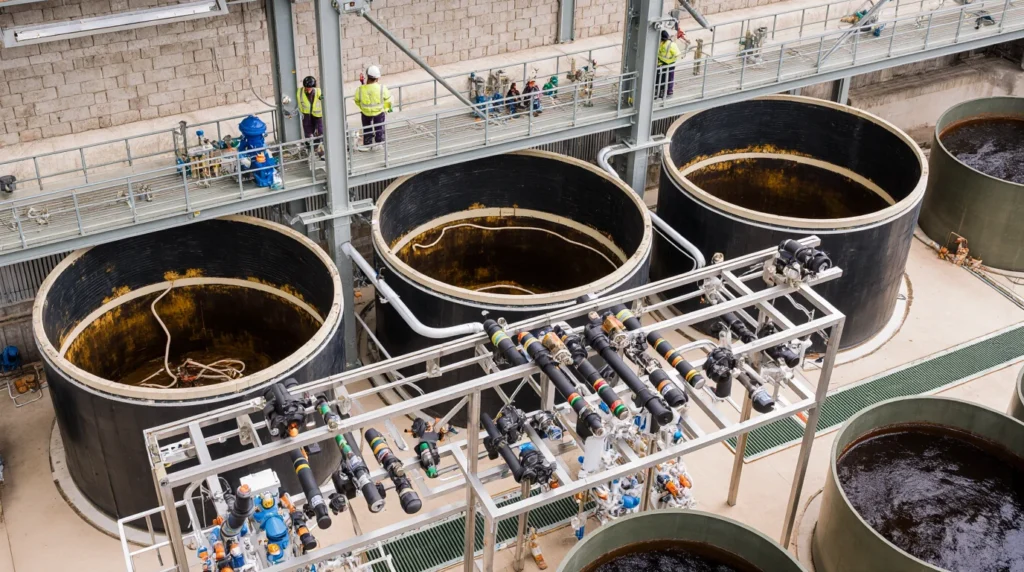
Ion exchange systems dominate the market with single-tank models priced between $500 and $1700. For households with higher water demands, dual-tank ion exchange systems offer continuous soft water supply at $1000 to $5000.
Magnetic water softeners present the most affordable option, typically costing $200 to $600. These systems use electromagnetic coils to alter mineral particles but have limited effectiveness compared to traditional systems.
Grain Capacity and Household Size Impact
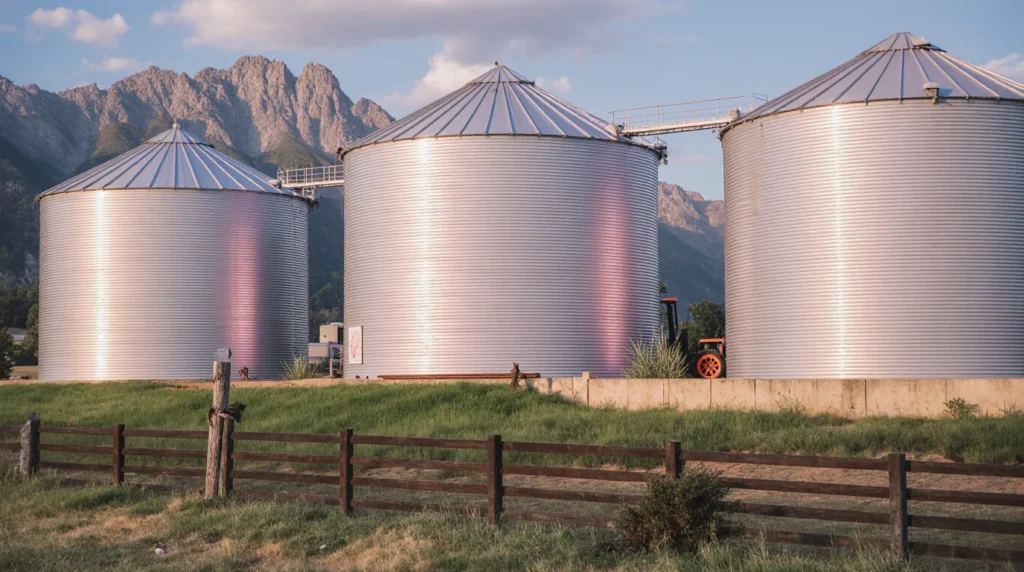
Your household size directly affects the appropriate grain capacity needed:
- 24,000 grains: $300-$600 (smaller households, moderate hardness)
- 32,000 grains: $400-$1000 (family of five)
- 48,000 grains: $500-$1200 (larger families, higher hardness)
- 64,000 grains: $1000-$1500 (very hard water conditions)
- 80,000+ grains: $1200-$1800 (commercial applications)
For example, a family of four using 360 gallons daily with water measured at 11 GPG would need approximately a 39,600-grain system. Larger systems cost more upfront but regenerate less frequently, ultimately saving on salt and water.
Brand Pricing: Budget vs Premium Models
Premium brands command significantly higher prices than budget options. Culligan, Kinetico, and Rainsoft systems range from $500 to $5000 without installation, typically costing 40-60% more than budget alternatives.
Budget-conscious buyers can consider GE water softeners ($500-$700) or Whirlpool systems ($400-$1500), which offer basic functionality at lower price points.
Professional-grade water softeners from specialized companies typically cost between $4000 and $7000, whereas “big box” water softeners from retailers like Home Depot should never exceed $800.
Additionally, “sticker” companies (those using aggressive marketing tactics) offer systems between $1500 and $5000, often with fewer features than professional-grade options.
Installation Costs: DIY vs Professional Setup
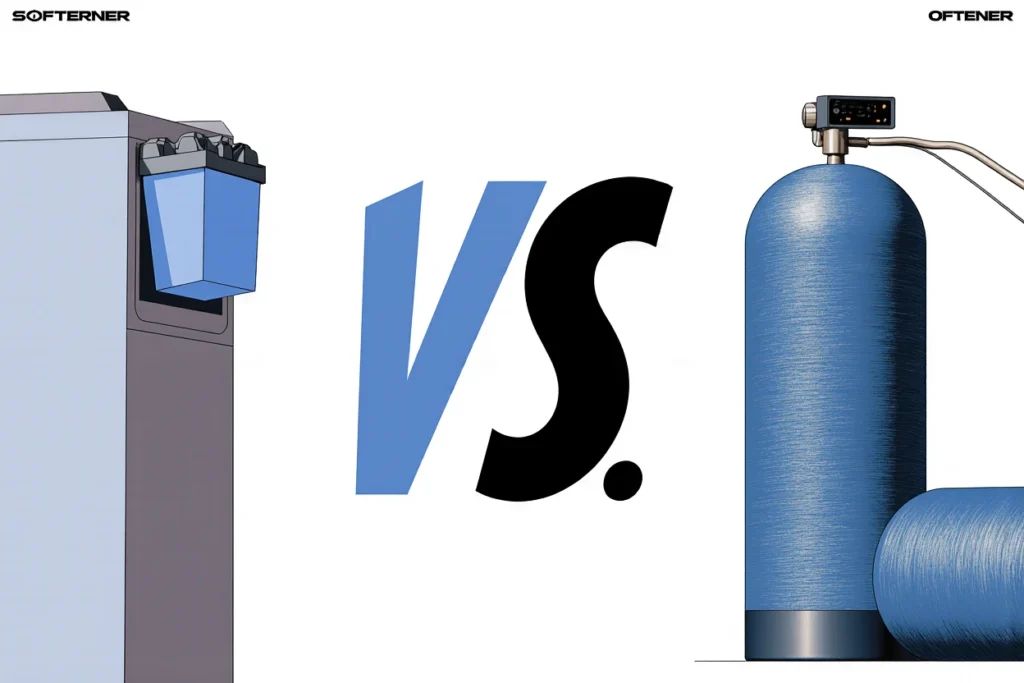
The installation process represents a significant portion of your total water softener cost. Deciding between professional service and DIY can dramatically impact your budget and long-term system performance.
Average Water Softener cost Installation
Professional installation typically runs between $150 and $1000 for labor costs alone, with most homeowners paying around $500 to $700 for standard installations. Basic hookups to existing plumbing connections fall on the lower end, while complex setups requiring electrical work or new plumbing modifications push costs higher. Regional differences play a role too—urban areas typically command higher installation rates than rural locations.
The national average for water softener installation ranges from $1126 to $1393 per system, encompassing labor, materials, and equipment. Furthermore, homes without existing water softener loops may need additional plumbing work that adds $200 to $800 to your total.
When DIY Installation Makes Sense
Despite professional costs, DIY installation makes financial sense primarily for those with plumbing experience. This approach can save you $150 to $1000 in labor expenses. According to manufacturers, replacing an old water softener can be done in under an hour, while new installations require several hours and additional plumbing knowledge.
DIY installation works best when:
- Your home is pre-plumbed for a water softener
- You’re simply replacing an existing unit
- You possess basic plumbing skills and proper tools
- Your local building codes permit self-installation
Hidden Costs in Complex Plumbing Setups
Notably, seemingly straightforward installations can quickly become complicated. If your water main isn’t easily accessible, new piping installation costs $0.50 to $8.00 per linear foot. Similarly, electrical requirements add $2.00 to $4.00 per square foot for new wiring.
Permit and inspection fees vary by location but can add substantially to your water softener cost installed. Moreover, DIY mistakes can prove costly—improper connections or failed seals may lead to water damage ranging from $2000 to $10,000, essentially nullifying any installation savings.
Ongoing Costs: Salt, Maintenance, and Repairs
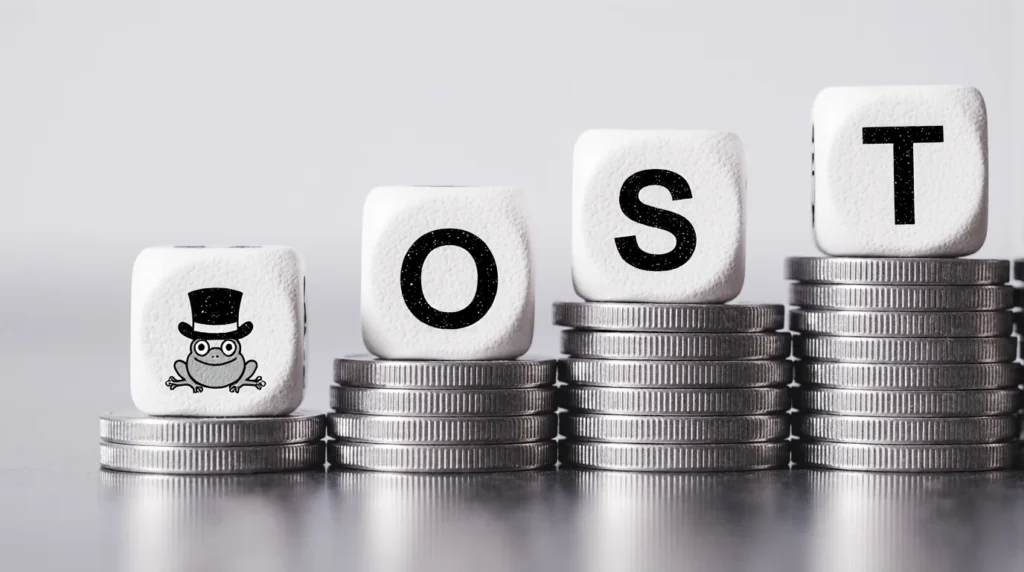
Beyond the purchase and installation expenses, owning a water softener involves ongoing costs that impact your total investment over time. These recurring expenses often exceed the initial purchase price throughout the system’s lifespan.
Monthly Salt Refill Costs
Salt-based water softeners require regular salt refills, typically costing between $5 and $25 per 40-pound bag. Most households consume approximately one bag monthly, though consumption varies based on water hardness and household size. A family of four with water hardness between 7-10 grains per gallon uses roughly 10 pounds of salt weekly, translating to monthly costs of $15-$40.
Salt-free systems eliminate this recurring expense, potentially saving $200-$500 annually on salt purchases alone. Consequently, while salt-based systems often have lower upfront costs, their lifetime operational expenses add up significantly.
Annual Maintenance and Service Fees
Regular maintenance ensures optimal performance and extends system lifespan. Annual service visits typically cost between $100-$250, including system cleaning, performance testing, and minor adjustments. Some companies offer all-inclusive maintenance contracts covering repairs, cleaning, salt refills, and annual inspections.
For salt-based systems, the resin bed typically needs replacement every 10 years, costing $200-$400. Additional filter replacements range from $20-$50 each, with pre-filters needing replacement every few months at $10-$30 per filter.
Common Repair Costs Over Time
Water softener cost repairs typically range from $150-$600, with costs varying by component:
- Brine tank replacement: $125-$700
- Resin bead replacement: $200-$400
- Filter replacement: $25-$500
- Control valve issues: $50-$500
Labor costs for professional repairs range from $45-$150 per hour, with most repairs requiring 1-3 hours to complete.
Warranty and Replacement Considerations
Standard water softener warranties typically offer one year on parts and 10 years on tanks, though premium manufacturers provide more comprehensive coverage. Indeed, some high-end brands offer lifetime warranties on tanks, valves, and even resin.
Water softeners generally last 10-15 years before requiring full replacement at a cost of $700-$3,000. Furthermore, reaching the 10-year mark might signal replacement is more economical than continued repairs.
A quality warranty should cover both parts and labor, with clear terms regarding maintenance requirements. Transferable warranties add value to your home if you decide to sell.
How to Choose the Right System for Your Budget

Selecting the perfect water softener requires balancing effectiveness with your budget constraints. Given the wide price range discussed earlier, making an informed decision becomes crucial for both immediate water softener cost and long-term value.
Water Hardness Testing and System Sizing
First, determine your water’s hardness level through testing. Professional water tests provide the most accurate results, but home testing kits also work effectively for measuring calcium and magnesium concentrations. Your results will typically appear in grains per gallon (GPG), parts per million (PPM), or milligrams per liter (mg/L).
Once you have your hardness number, calculate your daily softening requirements using this formula:
- Number of people × Average daily water use (75-82 gallons per person) × Water hardness (GPG) = Daily grain requirement
For instance, a four-person household using 300 gallons daily with 8 GPG hardness would need a system capable of processing 2,400 grains daily. A properly sized 30,000-grain softener would regenerate approximately every 11 days in this scenario. Undersized systems regenerate too frequently, while oversized ones waste resources.
Avoiding Overpriced Packages
To avoid paying excessive water softener cost, look for these quality indicators:
- NSF/ANSI 44 certification for residential water softeners
- Comprehensive warranties covering full systems, not just parts
- Proper water pressure maintenance capabilities
Nevertheless, be wary of “sticker companies” charging $1,500-$5,000 for systems with fewer features than professional-grade options. For comparison, professional water softeners typically range from $4,000-$7,000, while big-box store options should never exceed $800.
Tips to Save on Water Softener Cost Installed
Focus on what matters rather than brand names. Many lesser-known brands offer identical technology at lower prices. At this point, consider direct-to-consumer options that eliminate middleman markups.
Additionally, proper sizing prevents overspending—a household of 1-4 people typically needs only a 30,000-grain system, while 5-6 people require around 40,000 grains.
For travelers seeking accommodations with softened water amenities that protect both skin and appliances, epicurean stay offers options where water quality is prioritized alongside comfort.
Importantly, factor in long-term efficiency—systems with demand-initiated regeneration based on actual water usage significantly reduce waste and operational costs.
Conclusion
Making Your Final Decision on Water Softener Investment
After comparing various water softener options, you can clearly see how prices span from basic $300 models to comprehensive $10,000 systems. Most households typically spend between $1,000 and $3,000 for a complete system with installation. Nevertheless, understanding your specific needs remains essential before making this significant investment.
Water hardness testing stands as the foundation of proper system selection. Testing results provide crucial data for calculating your exact grain capacity requirements. Consequently, this prevents both undersizing (which causes excessive regeneration) and oversizing (which wastes resources and money).
Salt-based systems offer cost-effective initial purchase prices, though they require ongoing salt expenses of $15-$40 monthly for average households. Conversely, salt-free systems cost more upfront but eliminate recurring salt purchases, potentially saving $200-$500 annually. Therefore, considering the system’s 10-15 year lifespan becomes critical when calculating true ownership costs.
Professional installation certainly adds $150-$1,000 to your initial expense but helps avoid costly water damage from improper connections. DIY installation works well primarily for those with plumbing experience or when replacing existing systems.
Warranty coverage additionally deserves careful attention. Quality systems should offer comprehensive protection beyond the standard one-year parts warranty, particularly for expensive components like resin beds and control valves.
The right Water Softener cost your budget with household requirements rather than focusing solely on brand names or marketing claims. Furthermore, properly sized systems based on actual water usage patterns deliver the best long-term value despite potentially higher upfront costs.
Ultimately, your water softener investment should address your specific water quality issues while aligning with your budget constraints. A thoughtfully selected system will protect your plumbing, extend appliance lifespans, reduce cleaning time, and provide better-feeling water throughout your home for many years to come.
FAQs
Q1. What is the typical cost range for Water Softener cost installation? Water softener installation costs generally range from $1,000 to $3,000, including both equipment and labor. However, prices can vary widely based on factors such as system type, home size, and water hardness levels.
Q2. How do salt-based and salt-free water softeners compare in terms of cost? Salt-based water softeners are usually more affordable upfront, ranging from $400 to $2,700. Salt-free systems, while pricier at $800 to $4,000, can save money long-term by eliminating the need for regular salt refills.
Q3. What factors influence the ongoing costs of owning a water softener? Ongoing costs include monthly salt refills ($15-$40 for most households), annual maintenance ($100-$250), and potential repairs. Salt-free systems can save $200-$500 annually on salt expenses alone.
Q4. How can I determine the right size water softener for my home? To size your water softener correctly, test your water hardness and calculate your daily softening requirements. Multiply the number of people in your household by average daily water use (75-82 gallons per person) and your water hardness level in grains per gallon.
Q5. What should I consider when choosing a water softener to stay within budget? Focus on system efficiency and proper sizing rather than brand names. Look for NSF/ANSI 44 certification, comprehensive warranties, and appropriate grain capacity for your household. Be wary of overpriced packages and consider the long-term costs of salt-based versus salt-free systems.
